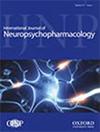门诊患者使用抗精神病药物与严重 COVID-19:在真实世界数据研究中避免年龄的影响
IF 3.7
2区 医学
Q1 CLINICAL NEUROLOGY
引用次数: 0
摘要
背景 抗精神病药物的使用与 COVID-19 结果之间的关联并不一致,这可能与这些药物用于老年相关疾病有关。此外,几乎没有证据表明抗精神病药物对非老年病人群有影响。我们的目的是评估抗精神病药物的使用与普通人群因 COVID-19 而导致的疾病进展和住院风险之间的关系,并按年龄进行分层。方法 我们开展了一项基于人群的多重病例对照研究,以评估:(1) 住院风险,病例为接受过 PCR(+)检测并需要住院治疗的患者,对照组为未接受过 PCR(+)检测的患者;(2) 进展为住院治疗的风险,病例与住院治疗子研究中使用的病例相同,对照组为未住院治疗的 PCR(+)患者。我们计算了总体调整后的几率比(aOR)和 95% 的置信区间(CI),并按年龄进行了分层。结果 65岁以上患者接受抗精神病治疗与COVID-19导致的较高住院风险(aOR 0.94 [95%CI 0.69-1.27])和PCR(+)患者的疾病进展(aOR 0.96 [95%CI 0.70-1.33])无关。然而,年龄≥65 岁的患者住院风险(aOR 1.58 [95%CI 1.38-1.80])和疾病进展风险(aOR 1.31 [95%CI 1.12-1.55])显著增加。结论 我们的大规模真实世界数据研究结果表明,在 65 岁以下的患者中,使用抗精神病药物与 COVID-19 导致的更高住院风险和病情进展无关。在 65 岁以上年龄组中发现的影响可能与抗精神病药物的标示外使用有关。本文章由计算机程序翻译,如有差异,请以英文原文为准。
Outpatient antipsychotic use and severe COVID-19: avoiding the impact of age in a real-world data study
Background The association between use of antipsychotics and COVID-19 outcomes is inconsistent, which may be linked to use of these drugs in age-related diseases. Furthermore, there is little evidence as regards their effect in the non-geriatric population . We aim to assess the association between antipsychotic use and risk of disease progression and hospitalisation due to COVID-19 among the general population, stratifying by age. Methods We conducted a population-based, multiple case-control study to assess: (1) risk of hospitalisation, with cases being patients with a PCR(+)test who required hospitalisation and controls being subjects without a PCR(+) test; and (2) risk of progression to hospitalisation, with cases being the same as those used in the hospitalisation substudy and controls being non-hospitalised PCR(+) patients. We calculated adjusted odds-ratios (aOR) and 95% confidence intervals (CI), both overall and stratified by age. Results Antipsychotic treatment in patients <65 years was not associated with a higher risk of hospitalisation due to COVID-19 (aOR 0.94 [95%CI 0.69–1.27]) and disease progression among PCR(+) patients (aOR 0.96 [95%CI 0.70–1.33]). For patients aged ≥65 years, however, there was a significant, increased risk of hospitalisation (aOR 1.58 [95%CI 1.38–1.80]) and disease progression (aOR 1.31 [95%CI 1.12–1.55]). Conclusions The results of our large-scale real world data study suggest that antipsychotic use is not associated with a greater risk of hospitalisation due to COVID-19 and progression to hospitalisation among patients younger than 65 years. The effect found in the over-65-year age group might be associated with off-label use of antipsychotics.
求助全文
通过发布文献求助,成功后即可免费获取论文全文。
去求助
来源期刊
CiteScore
8.40
自引率
2.10%
发文量
230
审稿时长
4-8 weeks
期刊介绍:
The central focus of the journal is on research that advances understanding of existing and new neuropsychopharmacological agents including their mode of action and clinical application or provides insights into the biological basis of psychiatric disorders and thereby advances their pharmacological treatment. Such research may derive from the full spectrum of biological and psychological fields of inquiry encompassing classical and novel techniques in neuropsychopharmacology as well as strategies such as neuroimaging, genetics, psychoneuroendocrinology and neuropsychology.

 求助内容:
求助内容: 应助结果提醒方式:
应助结果提醒方式:


